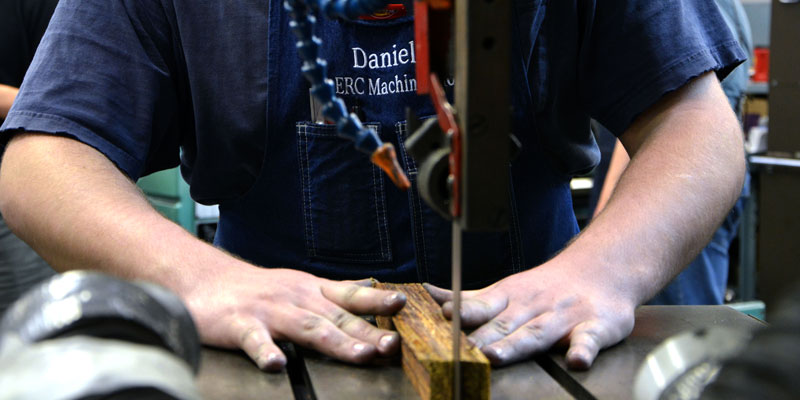
Could Alabama become home to a major new industry centered on bamboo farming and product manufacturing?
Southern Research and its Prosperity Fund initiative are teaming up with Resource Fiber, a bamboo fiber products company, to help realize the commercial potential of bamboo in a state known for thick pine forests.
Marsha Folsom, Resource Fiber’s Chief Development Officer/Governmental Affairs/Economic Development, said The Prosperity Fund has connected the firm with Alabama businesses interested in exploring industrial applications of bamboo and university professors who want to do bamboo research.
Meanwhile, Southern Research’s testing facilities are evaluating company bamboo products to determine strength and other important characteristics to advance their product development efforts.
“We are very excited about the prospects for the future with Southern Research and its Prosperity Fund and what this collaboration will do for the expansion of economic development around the mass cultivation of bamboo and manufacturing of bamboo industrial products in Alabama, a first for the U.S.,” Folsom said.
Southern Research and its Prosperity Fund initiative are providing testing services to Resource Fiber, a firm that wants to launch mass cultivation of bamboo and manufacture bamboo industrial products in Alabama.
She added that one of Resource Fiber’s goals is to act as a magnet to attract other industries interested in utilizing bamboo fiber to Alabama and the region.
“Collaboration with Southern Research serves as a key component to making that happen,” Folsom said.
EXPANDING RELATIONSHIP
Steven Puckett, managing director of The Prosperity Fund, said the economics of bamboo are compelling. Bamboo grows rapidly, up to two feet per day, and it yields 20 times more fiber than trees, with no replanting necessary. Plus, it requires little water and no pesticides.
Estimates show that bamboo could yield considerably more revenue per acre annually than pine, Puckett said.
“Bamboo cultivation and product manufacturing could one day become a significant new industry in Alabama, and that’s why The Prosperity Fund is keenly interested in its future possibilities,” Puckett said. “We are committed to investigating innovative solutions that spark job creation and foster sustainable growth through a new brand of economic development.”
The testing of bamboo samples is now underway at Southern Research’s Birmingham engineering facilities, focusing on factors such as strength and flammability that are integral to product development.
“Southern Research is performing testing on the bamboo product as the company moves forward to achieve the certification needed for commercial use,” Puckett said. “Certification is an expensive process, and we are helping work out all the kinks as they prepare for the certification process.”
Southern Research and its Prosperity Fund initiative are providing testing services to Resource Fiber, a firm that wants to make bamboo industrial products in Alabama.
Folsom said the testing at Southern Research will provide Resource Fiber with performance information before it sends product samples to third-party laboratories for industry certification. Securing that certification is key to market acceptance for the company’s products, which include bamboo rail ties and bamboo nail laminated timbers for the construction industry.
She expects Resource Fiber to work with the Prosperity Fund to expand the testing to other products in the future.
“We see this collaboration continuing and hopefully expanding into the future. A myriad of products can be made from bamboo,” Folsom said. “Through collaboration and drawing on the respective expertise from both Resource Fiber and Southern Research, we can establish Alabama as the epicenter of bamboo research, bamboo farming at scale, and bamboo manufacturing expertise in the U.S.”
GROWTH POTENTIAL
While bamboo represents a $60 billion industry worldwide, there hasn’t been much of an attempt to capitalize on it in the United States, according to Resource Fiber, which calls itself the nation’s only vertically integrated bamboo fiber products company.
Resource Fiber now operates a 100-acre in-field bamboo nursery in Greene County, located in Alabama’s “Black Belt,” named for the rich, fertile soil that made it a key cotton-producing region. With the doubling of the size of its nursery, the company expects to provide enough plants to populate 100,000 to 150,000 acres of bamboo over the next decade.
A Southern Research technician splits a piece of bamboo as part of testing conducted for Resource Fiber, which wants to launch a bamboo industry in Alabama.
While much of Resource Fiber’s focus is on the Black Belt, its growth potential has implications for the Alabama coal counties targeted by The Prosperity Fund. The company intends to move its production facility to Tuscaloosa County, and Puckett has connected it to support businesses in Walker and Jefferson counties already.
“As the bamboo economy grows in Alabama, we fully expect many more counties other than those in the Black Belt to benefit through expanded manufacturing of bamboo products utilizing bamboo fiber grown in Alabama,” Folsom said.
With financial backing from the Appalachian Regional Commission, Southern Research formed The Prosperity Fund in 2017 to accelerate small business growth and job creation in four Alabama counties hurt by the coal industry’s downward spiral.












